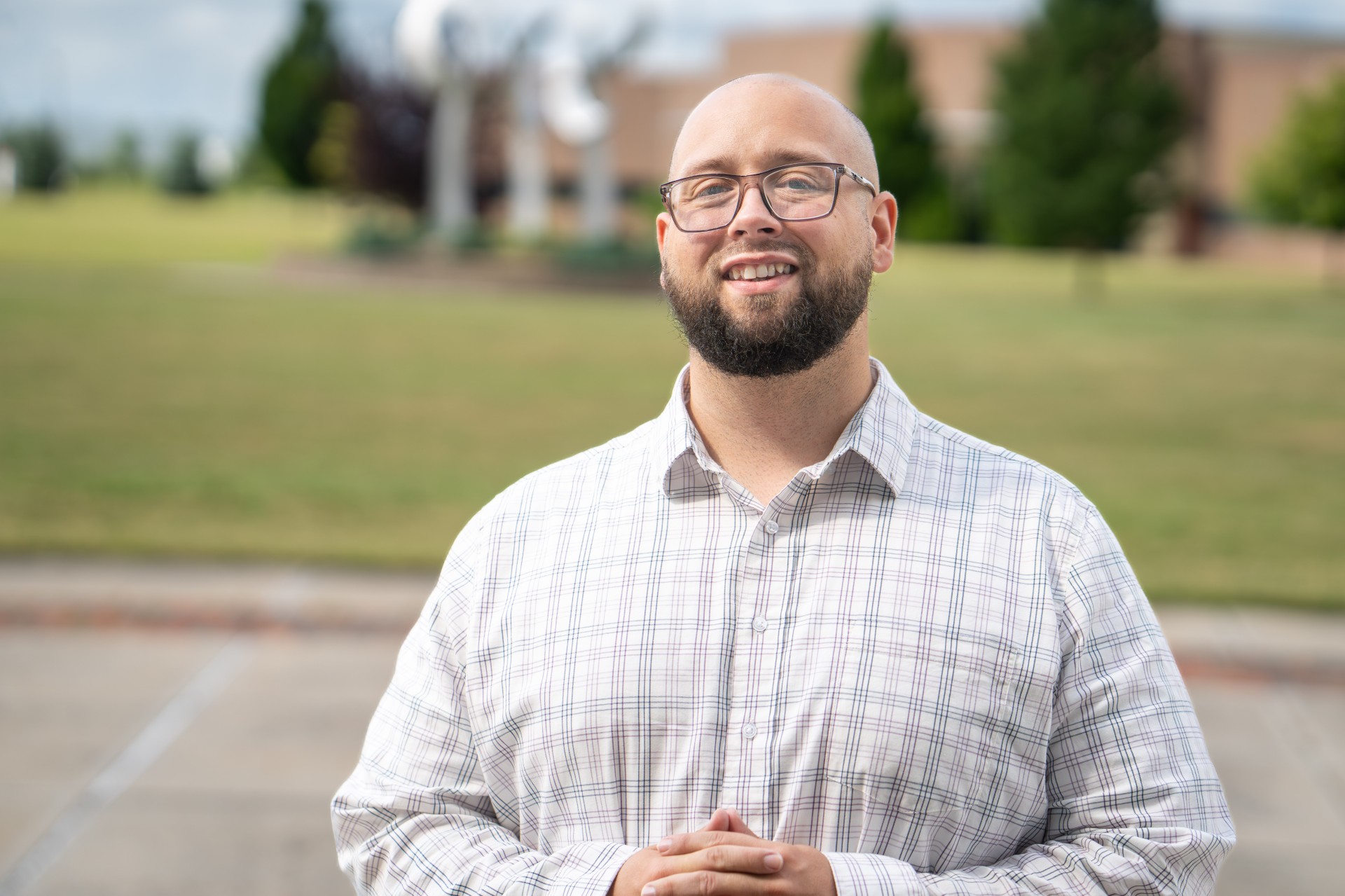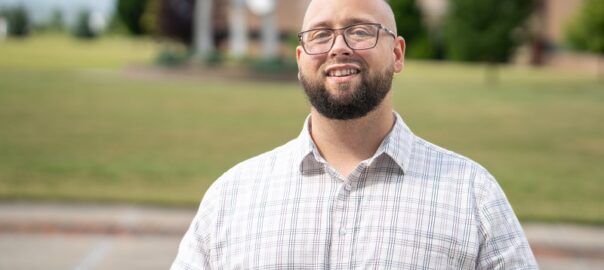(From Owens Community College)
The first part of Devin Davis’ story reads like a tragedy filled with drug addiction, prison time and undiagnosed mental health conditions.
As Davis has proved, though, how our stories play out are up to us. Sometimes, it just takes a little help.
A little more than a decade after leaving Owens Community College under academic probation, Davis is completing his studies at the Findlay-area Campus this summer, and he’ll graduate with an Associate of Arts in general education with a 4.0 GPA.
“Coming back to Owens was a great chance for me to make amends to them and myself,” Davis said. “Coming here, being transparent about my problems, being transparent about needing help and asking for it … all of the things that I was doing that really helped me are things successful college students are supposed to do in the first place.”
Davis, a Findlay native, first attended Owens as an 18-year-old in 2011. At that time, he was struggling with substance use and mental health issues, so he admits that showing up for class and doing his school work fell by the wayside.
He was also living on his own for the first time and learning how to take care of himself, so it was little surprise when he failed his first semester. He was given a probationary warning, and his academics didn’t improve from there.
The time between leaving Owens and coming back was full of self-discovery for Davis. He got sober in 2014, but with family members who struggled with the same problems, Davis found himself in prison. It was during those three years that Davis said he started to work on himself.
While he was handling his problems with substance use and mental health conditions, he got his CDL while incarcerated and never thought he would return to school. Even through everything else he’d overcome, he thought college was a bridge too far.
“At that time, I didn’t think I could come back. I told myself I would live successfully in another way,” Davis said.
Driving trucks paid the bills, but Davis wasn’t fulfilled. After being sober for around nine years, he started working part time at a substance use mental health facility, the Findlay Recovery Center. Positive feedback from the clients and clinical director gave Davis the chance to start facilitating groups. It wasn’t long before they wanted him to come on board full time.
Davis took a pay cut to follow the path he was destined for. He got his Chemical Dependency Counselor Assistant license. He kept getting great feedback. Saying that the relatability helps, he uses his experiences when he facilitates groups.
“When I share my story and see people nodding their head, not only am I getting paid to do that, I’m getting a level of acceptance and healing,” Davis said. “I feel less alone in the rooms I’m speaking in. One of the things I struggled with growing up was feeling misunderstood, feeling alone in a room full of friends. Now I’m having more self-awareness and sharing it with people so they know they’re not abnormal.”
Wanting to do more to help others, Davis realized he would need more education. So, he took a brave first step and contacted Owens.
While he was initially on academic jeopardy upon his return to Owens, he appealed it by writing a letter to explain how life circumstances influenced his poor performance, along with records and proof to back up his claims.
His redemption at Owens wasn’t done there, though; he also received academic forgiveness, which wiped the past failing grades from his academic record.
Davis is now well on his way to his ultimate goal of becoming a social worker, “like the one who showed me I could do this.” He wants to be the type of person he needed when he was lost.
“The idea of seeing me getting through that, getting an idea of what I truly want, having that guidance to get there and doing it in the most effective way time-wise and cost-wise, was very effective in moving forward in those goals,” Davis said.
“The fear and doubt pop up — Am I too old for this? I failed before; can I even do this? That reason ‘why’ I wanted to move forward gave me the encouragement I needed.”
Davis said it was important to utilize the support available at Owens, including the faculty, academic advisor and financial aid advisor. To do otherwise would feel like he was wasting his time.
“Watching Devin struggle through all of his classes in the beginning to becoming an academic success story was a great experience for me,” said Janet Tornow, academic advisor at Owens. “As his academic advisor, it was a pleasure working with Devin in his program of study and watching him graduate with a 4.0 GPA.”
He will walk during commencement ceremonies at Owens in December. Five months later, he’ll receive his Bachelor degree in social work from the University of Findlay. His plan is to then pursue a master’s degree at Bowling Green State University.
While still working at Findlay Recovery Center, Davis said he’d eventually like to work with the re-entry population of individuals who are transitioning back into society after a period of incarceration.
While explaining how important it is for those individuals to learn how to readjust to society and know what resources are available to them to help prevent them from slipping into old habits, Davis fairly succinctly summed up his own journey.
“You do what you always did, you’re going to get what you always got,” Davis said. “Who is there to show them any different?” To learn more about the Owens Findlay-area Campus, please visit owens.edu/locations/findlay.
(Devin’s picture courtesy of Owens Community College)

